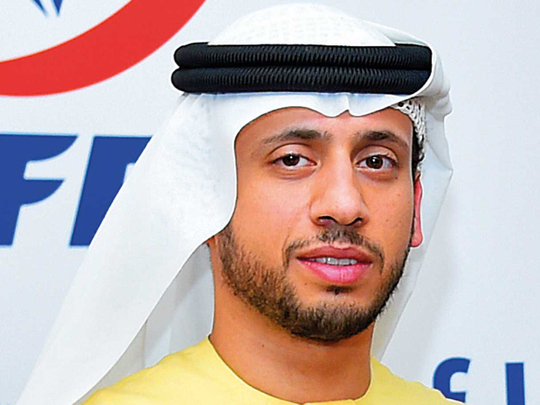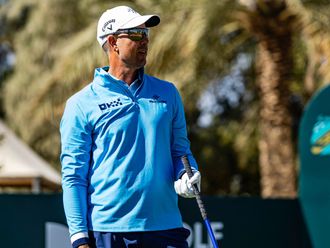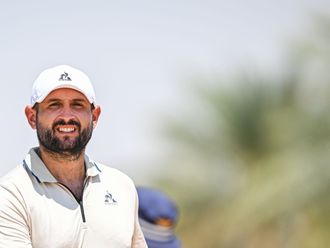
Dubai: Qais Al Dalai will grow participation and playing opportunities while correcting a disparity between east and west if he becomes president of Asia Rugby in November 19’s election in Hong Kong.
The 34-year-old Emirati general secretary of the UAE Rugby Federation (UAE RF) would not only become the youngest president of Asia Rugby but also the first to come from west Asia.
He has held his UAE RF role since 2009, and became general secretary and head of development at Asia Rugby in 2015. Since then he has held all three roles concurrently.
So far, no other candidate has emerged in the race to replace Japan’s Koji Tokumasu, who is standing down after a two-year term.
“This for me is the right time to run,” Al Dalai told Gulf News on Tuesday, a week after his candidacy broke on Twitter.
“I’ve had lots of support and I’m very confident. People have said it needs new blood and someone like me with energy, drive and ambition,” he said of his age.
“It’s not always about white hair but the brains underneath it to drive things. Seniority doesn’t qualify you for office, what qualifies you is your dedication, commitment, dreams and how you can drive people efficiently.”
Principle in his aims will be to iron out the disparity between east and west in Asia by increasing player pools and giving players more exposure to higher competition.
“The eastern part of Asia has done a lot for Asian rugby and now it’s the turn of the west to give back, but to do this it needs support and I am ready to support everyone. I will leverage the fact I’m the first candidate from the west without being biased. Asia is not only for the east, Asia is for everyone.”
One of his ideas in his role as general secretary and head of development at Asia Rugby has been ‘Asia One Million’, where the continent looks to gain an extra one million participants — not limited to players but also coaches, referees and officials — by the 2019 World Cup in Japan.
The scheme was launched last summer with emphasis on three potential high-yield countries; China, India and Pakistan. and from these three unions there are already 350,000 new participants making Asia the fastest-growing confederation in World Rugby, rising from third to first. Four more members are due to join the programme in its second term; Philippines, Uzbekistan, Nepal and Indonesia.
“Things are going very well, but we won’t go where there isn’t buy in from the unions and solid concrete development plans. We are only looking at high yield countries because we don’t want to invest in unions that won’t produce the numbers we need to make one million by 2019.”
With more participants, Al Dalai then wants to create more opportunity. And an Asian-wide club championship similar to football’s Asian Champions League — where the best of the west meets the best of the east in the final — is another idea of his, which looks to provide more game-time for 15s.
“The more fixtures I can create the more opportunity there will be for unions to unlock money, because if they know their league winner can go onto play the best in Asia then of course they will work to get more sponsors.”
‘Unlocking’ money and bringing more big corporations into the sport is high up in Al Dalai’s agenda, as he currently feels Asian rugby has a good product but hasn’t attracted enough sponsorship.
“There’s big potential for that in the Asian club championship the only shortcoming will be the disparity between east and west in terms of professionalism. Japan has a fully professional league, while South Korea and Hong Kong are semi-professional. There may be that difference at first but that shouldn’t stop us from using this idea and creating a base to build upon.”
Al Dalai’s other priorities are to standardise the calendar of sevens and 15s seasons across the continent, and to encourage more inter-continental games between countries, to promote exposure to higher levels of competition, similar to South Korea’s tests with Romania and Georgia this November.








